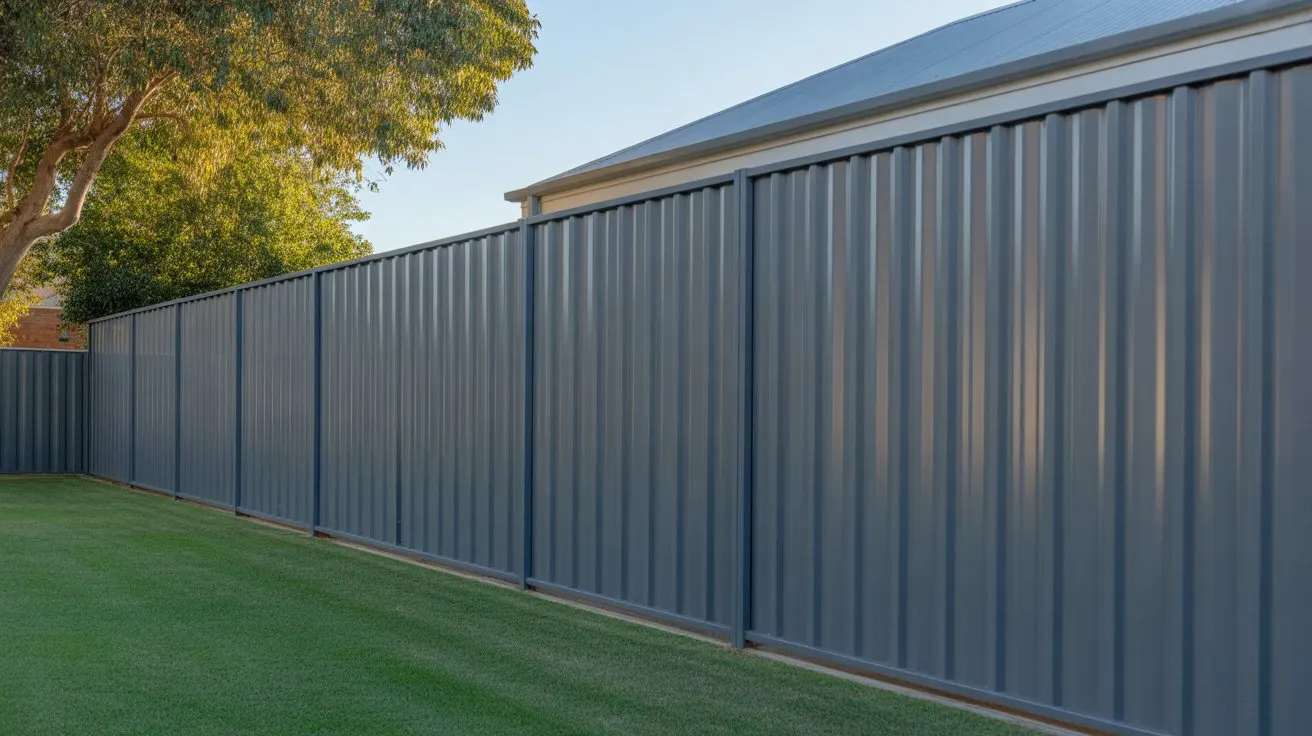Have you ever thought about whether your brand-new stainless steel tools or appliances might rust one day? You’re not by yourself. Many people think that stainless steel can’t rust because it’s labeled as not rusting any longer. How about stainless steel? Does it really rust? This is a popular question. Let’s find out the truth about how long stainless steel lasts, what it can’t do, and how to protect it.
What is Stainless Steel Made of?
To answer the question “can stainless steel rust?” you need to know what makes stainless steel unique. Stainless steel is a metal that is mostly made up of iron, carbon, and chromium, usually between 10 and 30 percent. The chromium covers the metal’s surface and keeps it from rusting or corroding. Because of this, stainless steel is often used for things like kitchen machines, medical tools, and outdoor furniture that need to be strong and resistant to the weather.
It’s not completely rust-proof, though, which is where the misunderstanding starts. Let us look into whether or not stainless steel would rust and if so, how.
Types of Stainless Steel and Their Rust Resistance
Not all stainless steel is created equal. Different types of stainless steel offer varying levels of corrosion resistance, depending on their chemical composition. The most common grades include:
- 304 Stainless Steel: Known for general-purpose use, it offers good corrosion resistance but may rust in coastal or high-salt environments.
- 316 Stainless Steel: Contains molybdenum, which makes it highly resistant to saltwater and chemicals. It’s often used in marine and medical applications.
- 430 Stainless Steel: A ferritic grade that is less expensive but also less corrosion-resistant, making it suitable for indoor applications.
Choosing the right grade of stainless steel for your environment especially in humid or coastal areas is key to preventing rust over time.
Would Stainless Steel Rust?
“Stained steel doesn’t rust” is a term you may have heard. Most of the time, this is true, but stainless steel will rust sometimes. The main thing that determines whether stainless steel will rust or not is what the metal is made of. If stainless steel is in harsh circumstances, like high humidity, salty air, or chemicals, its protective layer can be worn away, which can cause rust to form.
As an example, let’s say you didn’t clean your stainless steel kitchen sink and left it wet for days on end. Water can get stuck in tiny cracks over time, and if you don’t clean them often, they can wear away the protective layer, which makes stainless steel rust. This could cause stains and rust that look bad.
Common Types of Corrosion That Affect Stainless Steel
Stainless steel can still suffer from several forms of corrosion if not properly maintained. These include:
- Pitting Corrosion: Caused by chloride exposure, it creates small, deep holes in the surface. This often occurs in swimming pool areas or coastal regions.
- Crevice Corrosion: Happens in tight spaces where water and chemicals can collect, such as under gaskets or inside joints.
- Stress Corrosion Cracking (SCC): A rare but serious form of corrosion that occurs when tensile stress combines with a corrosive environment, causing the metal to crack.
- Galvanic Corrosion: Occurs when stainless steel is in contact with a more reactive metal (like aluminum or carbon steel) in the presence of an electrolyte.
Knowing these corrosion types helps you choose the right material and design practices to reduce long-term damage.
Does Stainless Steel Rust in All Conditions?
The big question is: Does stainless steel rust no matter what? The short answer is no, but there are some things that make rust more likely:
- Putting Stainless Steel in Saltwater—Salty air or saltwater makes stainless steel more likely to rust. Things made of stainless steel may not be safe if you live near the water.
- High Heat or Sudden Changes in Temperature—Being exposed to high heat or sudden changes in temperature for a long time can weaken the protective chromium oxide layer, which makes it easier for rust to form.
- Not taking care of your stainless steel properly—if you don’t clean it regularly or use rough cleaners, the protected surface can wear away, which makes rust more likely.
Do Stainless Steel Rust in Humid Environments?
Even though stainless steel doesn’t rust easily, it can happen. Does stainless steel rust in damp places? Yes, the material can weaken and rust if it is exposed to wetness for a long time, especially if there isn’t enough air flow. For example, stainless steel faucets can break down over time in a bathroom with a lot of humidity, especially if they are not taken care of properly.
Expert Tips to Keep Stainless Steel Rust-Free
We now know that stainless steel can rust in some situations. Let’s talk about how to keep it from happening. Here are some tips from professionals on how to keep your stainless steel things shiny and free of rust:
- Clean Often: Use a soft cloth and warm water to wipe down your stainless steel surfaces often to get rid of dirt, dust, and water that could cause rust.
- Avoid Harsh Chemicals: Do not use harsh cleaners or bleach on the surface because they can scratch it and make it more likely to rust.
- Use a protected Coating: Add a layer of a cleaner or protectant made just for stainless steel to make the protected layer stronger and lower the risk of corrosion.
- Maintain Good Ventilation: Make sure that your stainless steel items don’t spend long amounts of time in places with high humidity or moisture.
- Pick Stainless Steel of Good Quality: Buy high-quality stainless steel, like 316 stainless steel, because it doesn’t rust as easily, especially in tough places like seaside areas.
Rust Inhibitors and Protective Treatments
To extend the life of stainless steel, many industries use rust inhibitors chemical agents that prevent corrosion. These can be categorized into:
- Passive Inhibitors: Form a barrier layer that separates the steel from moisture and air.
- Active Inhibitors: Chemically bond to the metal to create a protective layer against oxidation.
You can also apply specialized coatings like clear acrylic, powder coating, or passivation treatment to reinforce the chromium oxide layer and improve rust resistance in harsh environments.
Why Rust Still Happens and How to Spot Early Signs
Rust on stainless steel often begins as faint discoloration or tiny brown spots. If left untreated, these can spread and compromise the metal’s integrity. Watch out for:
- Dull or uneven surface appearance
- Brown or reddish stains around seams or joints
- Spots forming in moist or shaded areas
Regular inspections and cleaning can help you catch corrosion early and prevent costly repairs.
What to Do if You Notice Rust on Stainless Steel
Do not be alarmed if you see rust on your stainless steel. Most of the time, the surface can be cleaned and fixed with a little work. First, use a soft brush and a stainless steel cleaner to scrub the area softly. If the rust is really stuck, use vinegar and baking soda mixed together or a special rust cleaner.
Conclusion: Can Stainless Rust?
In conclusion, stainless steel can rust, but if you take good care of your items made of stainless steel, they will stay in great shape for years. In most cases, it’s a great material for keeping things from rusting, but it’s not perfect. Keeping stainless steel from rusting means cleaning it often, keeping it out of harsh settings, and doing the right maintenance. Staying proactive will go a long way toward keeping stainless steel tools, cookware, and custom-made items looking good for a long time.
The next time someone asks, “Can stainless steel rust?” you’ll know that in normal situations, it probably won’t. However, it’s still important to take care of your stainless steel so that it stays shiny and rust-free. Have fun cleaning!
If you need professional assistance with welding and fabrication services, A to Z Fabrication Pvt Ltd in Guildford, NSW, has you covered. They specialize in offering high quality welding and fabrication solutions for various metal products, including stainless steel. Whether you’re looking to get stainless steel items custom-made or repaired, their expertise ensures that you’ll receive durable, rust-resistant products tailored to your needs.
Looking for Professional Welding and Fabrication Services?
We offer top-notch welding and fabrication solutions in Guildford, NSW. Contact us for custom stainless steel products and repairs!
FAQs
Can stainless steel rust?
Yes, stainless steel can rust under certain conditions. While it is resistant to corrosion due to the chromium content, exposure to harsh environments like saltwater, humidity, or extreme temperatures can weaken the protective layer and lead to rust formation.
Would stainless steel rust in a coastal area?
Yes, stainless steel is more likely to rust in coastal areas where it is exposed to salty air and humidity. It’s important to clean and maintain stainless steel regularly in these conditions to prevent rust.
Does stainless steel rust in the bathroom?
Stainless steel can rust in a bathroom if it’s exposed to high humidity levels for extended periods. To prevent this, ensure good ventilation and regularly clean the fixtures to keep moisture from sitting on the surface.
How can I prevent stainless steel from rusting?
To prevent rust, clean your stainless steel regularly, avoid harsh chemicals, use a protective coating, and ensure that it’s not exposed to moisture for long periods. High-quality stainless steel alloys (such as 316) are more resistant to rust.
What should I do if I see rust on my stainless steel?
If you notice rust on stainless steel, clean the affected area using a stainless steel cleaner or a mixture of vinegar and baking soda. For more stubborn rust, a specialized rust remover can help. Gently scrub the area with a soft brush to restore the surface.
Does stainless steel rust if exposed to water?
Stainless steel may rust if exposed to water for long periods without proper cleaning or drying. Always wipe down stainless steel surfaces after exposure to water, especially in areas like kitchens or bathrooms.
How can I maintain stainless steel to avoid rust?
Regular cleaning, avoiding harsh cleaners, and applying a protective coating can help maintain stainless steel. Also, consider investing in high-grade stainless steel, which offers better rust resistance, especially in challenging environments.
Can A to Z Fabrication Pvt Ltd help with stainless steel fabrication?
Yes, A to Z Fabrication Pvt Ltd provides welding and fabrication services, including the design and creation of custom stainless steel products. They ensure high-quality, durable, and rust-resistant stainless steel items for various applications.
Is all stainless steel rust-resistant?
Not all stainless steel is equally resistant to rust. Stainless steel alloys vary in their resistance to corrosion. Higher-grade stainless steel, such as 316, is more resistant to rust, especially in harsh environments like marine or coastal areas.
Can I use stainless steel in outdoor environments?
Yes, stainless steel can be used outdoors, but it’s important to choose the right alloy for the environment. Stainless steel is ideal for outdoor use as long as it is cleaned and maintained regularly to protect it from the elements.







